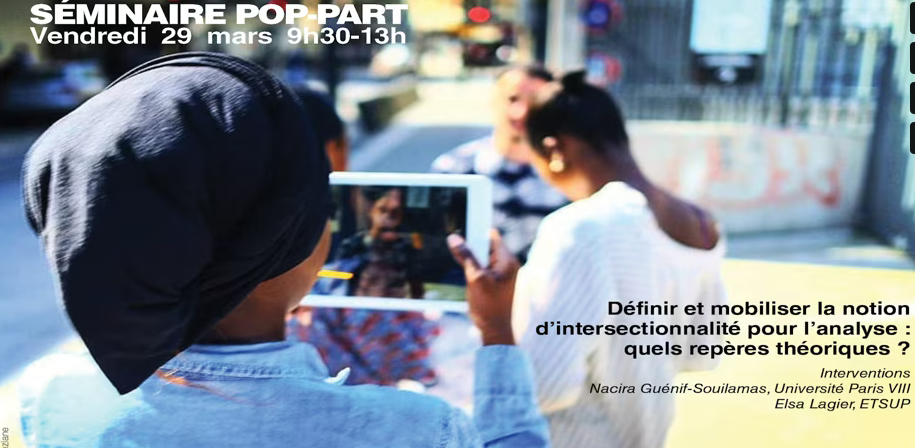Définir et mobiliser la notion d’intersectionnalité
TRYSPACES
Founded in the late 1980s by African-American lawyer Kimberlé Crenshaw in the context of the birth of Black Feminism in the United States, “intersectionality” has become a “hit concept” – to use Elsa Dorlin’s expression [2012] – in the world French academic and activist since the 2000s. First conceived as a critical tool of American law aimed at recognizing the overlapping of several types of discrimination in a legal context which segments them, the concept of intersectionality is today widely mobilized by the human and social sciences to think about character multidimensional of the construction of relationships of power and domination. If the triptych “class, gender, race” has now become classic, age, place of residence, religion, sexual orientation can also be used as categories of analysis. intersectional. In the analysis of the data collected during the Pop-Part research workshops and interviews, the interweaving of these different dimensions of the construction of identities and the production of power relations appears to be a fruitful axis of analysis. This seminar will therefore aim to constitute a common theoretical base for the different participants in Pop-Part research around the concept of intersectionality. We will return to its genealogy, its contributions and its limits in the human and social sciences. We will address the issues epistemological, ethical and academic that this concept poses in the academic world and Finally, we will attempt to address the methodological and analytical difficulties of a reading intersectionality of empirical material.

Type of production: Teaching materials
City: Paris
Year of publication: 2019
Publisher: TRYSPACES
Language(s) of publication: Français
Keywords: